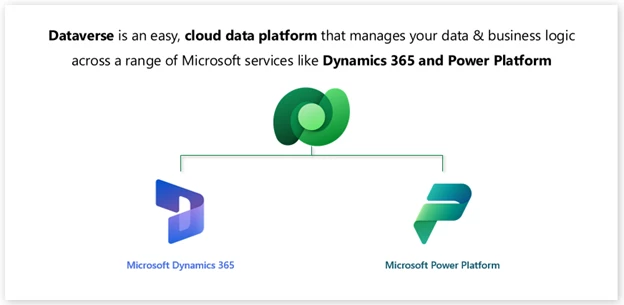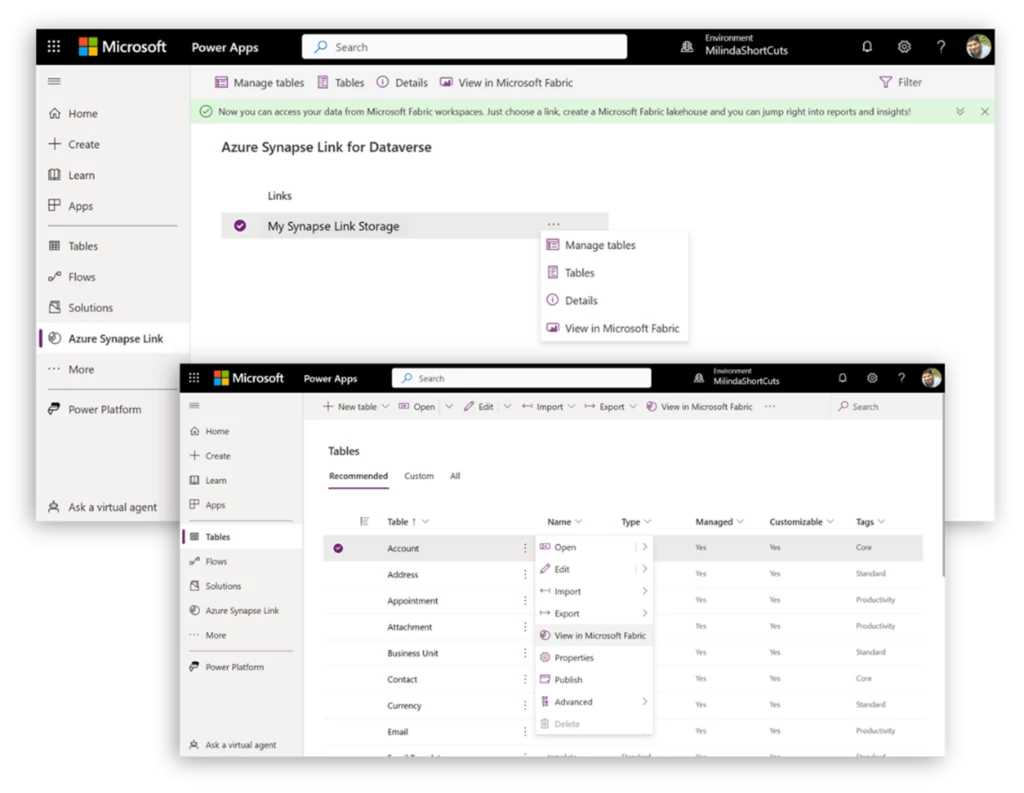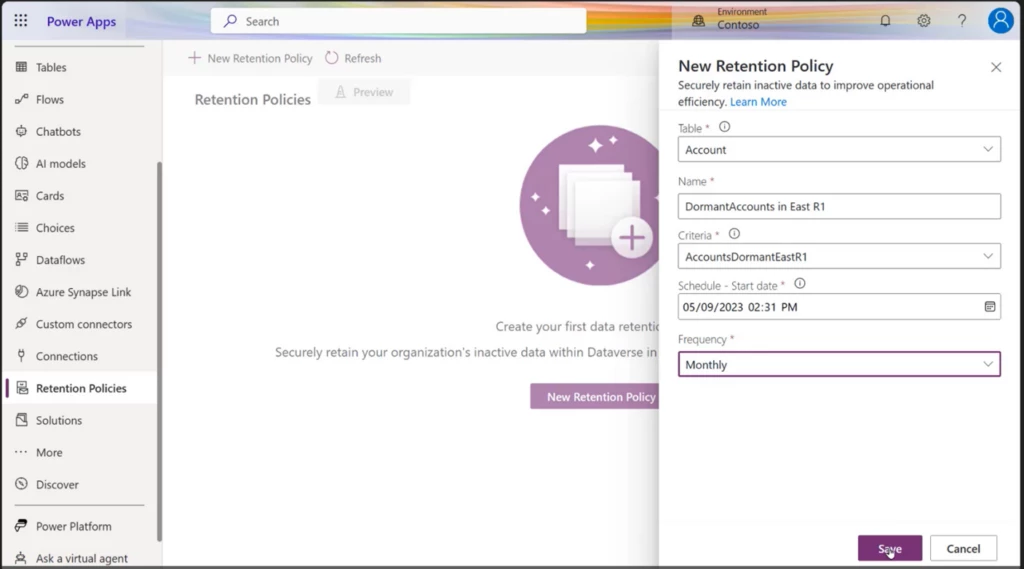New Dataverse enhancements and AI-powered productivity with Microsoft 365 Copilot
 Thomas Wisniewski
Microsoft Employee
Thomas Wisniewski
Microsoft Employee
At Microsoft Build 2023, we're announcing new AI, low code, and data management capabilities that enable our Dynamics 365 customers to complete time-consuming tasks faster and gain more insights from their business data. We're also introducing enhancements to Dataverse, our smart, secure, scalable, low-code data platform that 97% of Fortune 500 companies rely on. Together, these updates make it easier than ever for organizations to extend their Dynamics 365 enterprise applications and business processes across the Microsoft Cloud securely and compliantly.

Unlock AI-enhanced productivity with your Dynamics 365 data
Two months ago, we announced Microsoft 365 Copilot, a revolutionary new way of working that uses AI to enable users to get answers and perform tasks using natural language prompts. Available now to early access customers, Copilot combines the power of a large language model, Microsoft productivity and business apps, and your datayour calendar, emails, chats, documents, meetings, and contactsto do things you've never been able to do before, just by telling it what you want. For example, give Copilot a natural language prompt like "Tell my team how we updated the product strategy," and it generates a status update based on the morning's meetings, emails, and chat threads.
We're excited to announce that now Microsoft 365 Copilot can incorporate your Dynamics 365 and Power Platform data stored in Dataverse, all in an easy-to-use, unified experience. By replacing dozens of steps in multiple apps and constant context switching with simple, natural language prompts, imagine what your teams can accomplish in minutes instead of hours:
- A sales professional can generate a status update for the top 25 leads based on engagement activity over the past two weeks.
- A marketer can summarize topics and needs from responses and update an email marketing campaign in real-time.
- A customer service manager can summarize the top trending customer issues from the past week as an email to senior leadership.
Microsoft 365 Copilot automatically inherits the native security and governance framework of Dataverse and applies user security and permissions at runtime.
Dynamics 365 and Microsoft Fabric, better together through Dataverse
Organizations want to make better decisions that are based on data. Dataverse integrates Dynamics 365 business application data with Microsoft tools that deliver actionable insights and reporting, like the Dataverse Power Query connector, rich Dataverse integrations with Power BI, and Azure Synapse Link for Dataverse.
Today at Build, Microsoft announced Microsoft Fabric, a new, end-to-end analytics platform. Data Factory, Data Engineering, Data Warehousing, Real-Time Analytics, Data Science, Data Activator, and Power BI are all hosted on a lake-centric SaaS solution for simplicity and to maintain a single source of truth. This makes your business data more easily discoverable and accessible, so that you can use it to make better decisions every day.
Today we're also happy to announce "View in Microsoft Fabric" for Dataverse. Coming later this year to every Dynamics 365 customer, "View in Microsoft Fabric" automatically makes all your Dynamics 365 data available for analysis in Microsoft Fabric without having to copy data, build ETL pipelines, or use third-party integration tools. With just one click, you'll get more insights from your business data stored in Dataverse.
Our business is asking for more and more insights from data in Dynamics 365 as well as our own systems, both legacy on-premises and new Azure-based platforms. I am under constant pressure to deliver more information to more stakeholders without the delays and costs of data integration infrastructure and resources. So we are really excited about the savings and simplicity introduced by Microsoft Fabric and Dataverse. Our users can continue to work with the tools they lovePower BI and Exceland my team doesn't need to invest in weeks and months of effort to be able to start building ETL pipelines, warehouses, and data models.
Tracy Gardner, Vice President IT, WB Mason
Your Dynamics 365 data doesn't leave the Dataverse governance boundary. Changes are reflected in Power BI reports automatically. Dataverse also automatically generates an enterprise-ready Synapse Lakehouse and SQL endpoint for your Dynamics 365 data in Microsoft Fabric. This makes it easier for data engineers and DB admins to combine data from multiple sources and build custom analytics in Spark, Python, or SQL.
Eliminate data siloes with Fabric and Dynamics 365
Microsoft Fabric's lake-centric approach helps to eliminate data silos. Combine data from your applications and devicesweb sites, mobile apps, sensors, and signals from your warehouse and factorieswith data from your business processes in Dynamics 365sales, cases, inventory, and ordersto predict potential delays or shortages that affect keeping your promises to customers.

Direct integration between Dataverse and Microsoft Fabric saves significant time and effort. Your makers can build low-code apps and automations to orchestrate business processes and react to insights found in Microsoft Fabric using connectors to over 1,000 apps. Add those insights back to Dataverse as external or virtual tables through the SQL endpoint and makers can turn them into low-code apps with Power Apps, Power Pages, or Power Automate using skills they already have.
Optimize your capacity costs with long-term retention policies in Dataverse
The longer an enterprise application runs, the more historical data it accumulates. Often, customers must keep this data to comply with compliance and regulatory requirements, but storage costs mount up. With the new long-term retention capability in Microsoft Dataverse, you can save on storing inactive data that's rarely accessed without investing in custom archival solutions.
From the Power Apps maker portal, admins can set retention policies with criteria driven by compliance requirements and manage the policies with a dashboard. The retained data has security controls and governance applied and never leaves your Dataverse environment. Admins can access it when needed using advanced find. No new data or security model is required, even if you later customize the application or Dataverse tables.

Admins can view the impact of data retention policies in Power Platform admin center capacity reports, which show the retained capacity and associated savings.
Learn more about Dataverse long-term retention and try out the preview.
New zero-trust security features in Dataverse
The foundation of any enterprise-grade solution is security. Dataverse enables even more granular security in Dynamics 365 and Power Platform with new IP access management and managed encryption key features.
IP enforcement
As organizations continue to adopt and build solutions in Dataverse, it's increasingly important to restrict access to data to the right users at the right times and places. Govern user access in real-time with Azure Active Directory (Azure AD) continuous access evaluation IP restrictions and an IP firewall.
- IP restrictions. Azure AD access evaluation restricts unauthorized access based on IP address by evaluating user-critical events like account deletion. When changes that require restriction of user access occur, access is denied in nearreal-time.
- IP firewall. Azure AD puts valuable business data behind an IP firewall that can restrict user access if the IP address isn't a part of a trusted network. Threats like insider data exfiltration or token replay attacks can be mitigated for all business processes running in Dataverse.
Encryption keys
In addition to improving granular security access, Dataverse safeguards sensitive customer data by integrating Azure Key Vault customer-managed encryption keys ("bring your own key") in Dataverse environments. Organizations can create a Power Platform enterprise policy that can be applied to individual or groups of Dynamics 365 and Power Platform environments across storage types like analytics, logs, and more.
Preventing other parties from accessing data stored in the cloud has been a key concern for Mercedes-Benz from the beginning. This is becoming even more important as we embrace the "cloud-first" paradigm striving to make the most out of cloud capabilities. We deem the risk so severe that we do not allow confidential data to be stored in the cloud if that risk is not mitigated properly. This made use of Dataverse and the low-code/no-code capabilities complex using the Power Platform. Microsoft's new security features help a lot in this regard, CMK being the key aspect but not underestimating the rest like IP-based cookie binding and IP firewall, subnet delegation, and others. While the features in [themselves] are changing the game, the support, consulting, and help implementing these are a constant boon for our security efforts and just one more reason why we place our trust in Microsoft's Power Platform.
Patric Liebelt, Lead Center of Enablement Microsoft Power Platform, Mercedes-Benz
Dataverse is the data platform supporting Dynamics 365, and we're committed to delivering the advancements your organization needs to support and scale to any enterprise application.
Learn more
Watch the Power Platform Build 2023 keynote: The future of app development with the Microsoft Power Platform
Watch the Power Platform and Dataverse Build 2023 discussion: Data-drive app and web development with Microsoft Power Platform, Q&A
Learn how Common Data Service became Dataverse
Introducing Microsoft 365 Copilot your copilot for work | The Official Microsoft Blog
Get started with Microsoft Dataverse using the Power Apps developer plan: Power Apps developer plan
Not yet a Dynamics 365 customer? Take a tour and get a free trial.
The post New Dataverse enhancements and AI-powered productivity with Microsoft 365 Copilot appeared first on Microsoft Dynamics 365 Blog.




 Like
Like Report
Report
*This post is locked for comments